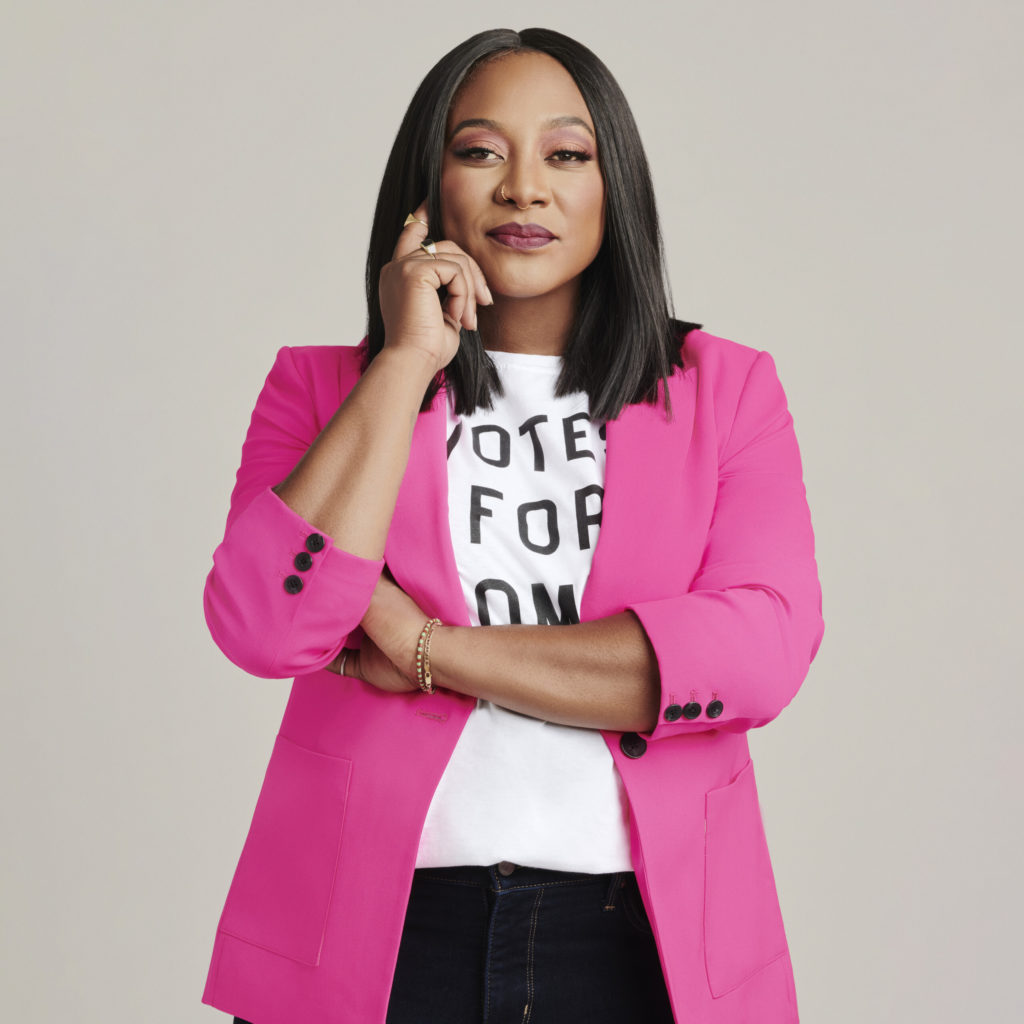With 2022 shaping up to be a pivotal year for midterm elections, it’s important now more than ever that we continue to build power. The act of building power has no singular look, but it does involve listening to trusted voices who have our best interests at heart. From being a co-creator of #BlackLivesMatter and the Black Lives Matter Global Network to founding Black Futures Lab, one of those voices is Alicia Garza, who stopped by Blavity News to discuss her podcast, the Black Census Project and more.
On her podcast
When it comes to reaching people, Garza knows no bounds. Delving into the podcasting arena with her podcast that launched at the beginning of the COVID-19 pandemic, Lady Don’t Take No, the California native describes it as a bridge between politics and pop culture.
“I was trying to stay informed about things that were going on, but I couldn’t take this constant drone of information that all felt all bad. I’m a political junkie, so I figured if I couldn’t take it, lots of other people couldn’t take it,” Garza said.
“This podcast was really born out of a desire to talk about politics and pop culture and trying to make something that had been terrible a little bit easier to manage and deal with. We bring people onto this podcast that are folks who are doing incredible things in the world, and I want to introduce our listeners to these people to inspire hope. We’ve had a great time with this podcast and are looking to turn it into a television show.”
On her book
Oftentimes, organizing spaces can be restrictive to those who may not be considered as conscious or woke as others when it comes to politics. Garza is challenging that narrative in her book, The Purpose of Power: How We Come Together When We Fall Apart, in which the dialog is centered on the importance of making room for people who are still on their journey of understanding and implementing organizing.
“My hope is that this book helps to give somewhat of a roadmap and also pulls back the curtains,” Garza told Blavity News. “For me, one of the major lessons that I think, across generations of movements, is this lesson about how people access our organizations and our movements and become a part of them.”

Photo Credit: Courtesy of Alicia Garza/WhitPR
On the Black Census Project
While most politicians have made it a trend to only seek the opinions of the Black community during election season, Garza and her team at Black Futures Lab have been doing so since the organization’s formation. One of their major initiatives, the Black Census Project, is a survey that gives Black people the opportunity to chime in on events and circumstances that impact their lives. For Garza, she believes that this survey will have a major impact on the Black community’s presence at the polls this fall.
“The Black Census Project is one of our flagship projects at Black Futures Lab, and it is the largest survey of Black people in America in 157 years,” Garza said. “This year, we are shooting to reach 200,000 Black folks from across the country in all languages and many different demographics.
“We’re trying to become the largest survey of Black people in history in this country. The Black Census Project is important because Black people, especially as it relates to politics, get talked to and talked about, but we’re rarely engaged with the things that are shaping our lives every day and what it is we want to see done about it.”
Her advice to elected officials
When it comes to creating a more equitable future for America, specifically Black America, Garza feels that elected officials need to do a better job of engaging with the Black community.
“Elected officials, in order to create a more equitable future for America and specifically Black America, need to do a better job in engaging Black people in their constituencies and their communities,” Garza said. “There is no reason that Black people should continue to be expected to show up to the polls to get people elected and not get anything else out of politics. We aim to change that, but elected officials need to be able to do that, too.”
For more information on the Black Census Project, click here.
